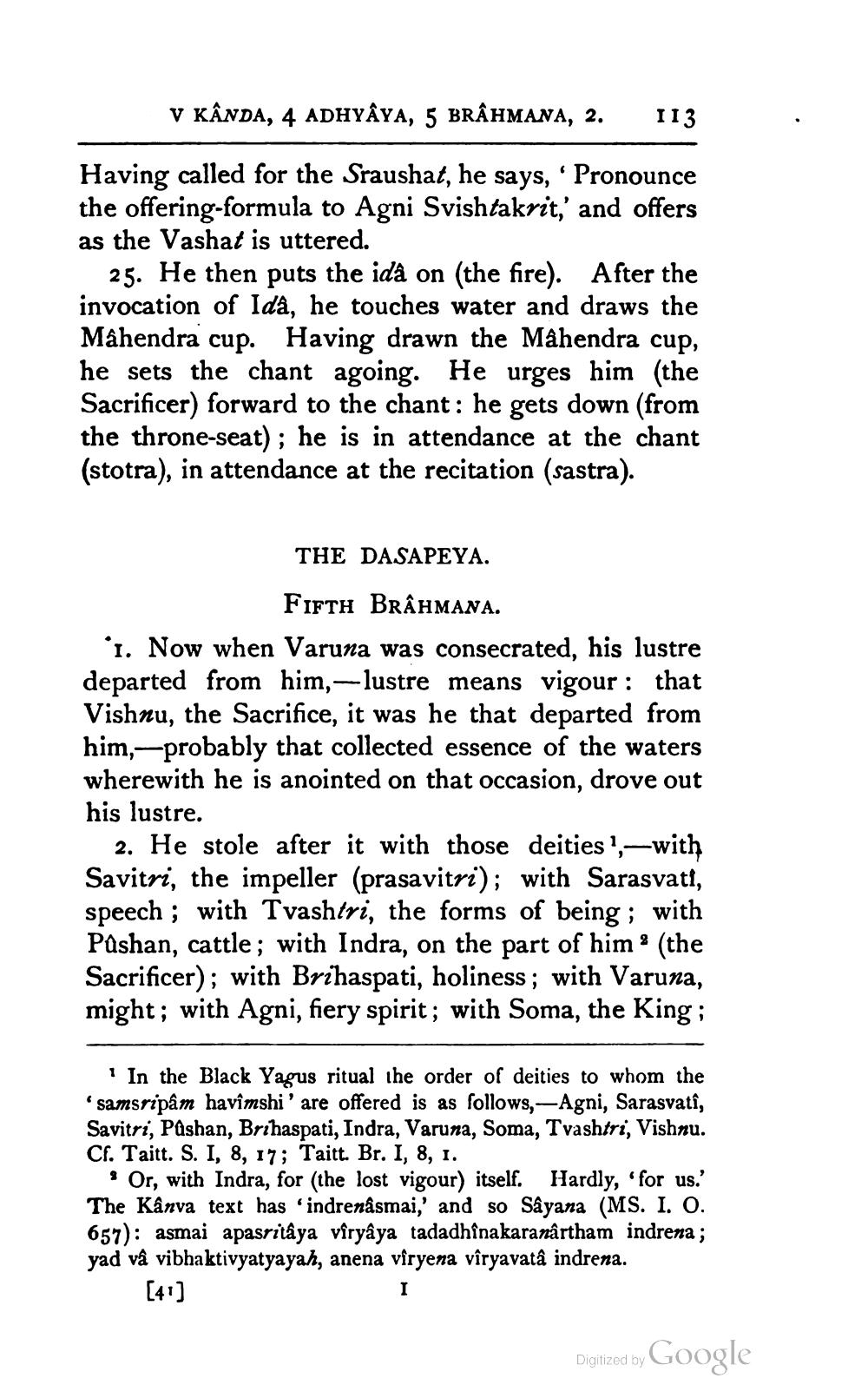________________
V KÂNDA, 4 ADHYÂYA, 5 BRÂHMANA, 2.
113
Having called for the Sraushat, he says, ' Pronounce the offering-formula to Agni Svishtakrit,' and offers as the Vashat is uttered.
25. He then puts the idà on (the fire). After the invocation of Ida, he touches water and draws the Mahendra cup. Having drawn the Mahendra cup, he sets the chant agoing. He urges him (the Sacrificer) forward to the chant: he gets down (from the throne-seat); he is in attendance at the chant (stotra), in attendance at the recitation (sastra).
THE DASAPEYA.
FIFTH BRÂHMANA. 1. Now when Varuna was consecrated, his lustre departed from him,- lustre means vigour: that Vishnu, the Sacrifice, it was he that departed from him, probably that collected essence of the waters wherewith he is anointed on that occasion, drove out his lustre.
2. He stole after it with those deities !, -with Savitri, the impeller (prasavitri); with Sarasvati, speech; with Tvashtri, the forms of being ; with Pushan, cattle; with Indra, on the part of him ? (the Sacrificer); with Brihaspati, holiness; with Varuna, might; with Agni, fiery spirit; with Soma, the King;
'In the Black Yagus ritual the order of deities to whom the samsripam havîmshi' are offered is as follows,—Agni, Sarasvatî, Savitri, Pashan, Brihaspati, Indra, Varuna, Soma, Tvashtri, Vishnu. Cf. Taitt. S. I, 8, 17; Taitt. Br. I, 8, 1.
. Or, with Indra, for (the lost vigour) itself. Hardly, 'for us.' The Kânva text has 'indrenâsmai,' and so Sâyana (MS. I. O. 657): asmai apasritâya vîryâya tadadhînakaranârtham indrena; yad vâ vibhaktivyatyayah, anena viryena vîryavatâ indrena.
[41]
Digitized by Google




